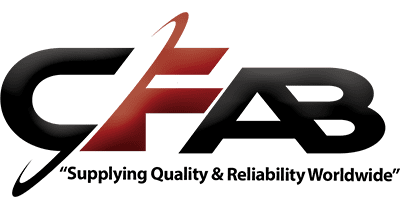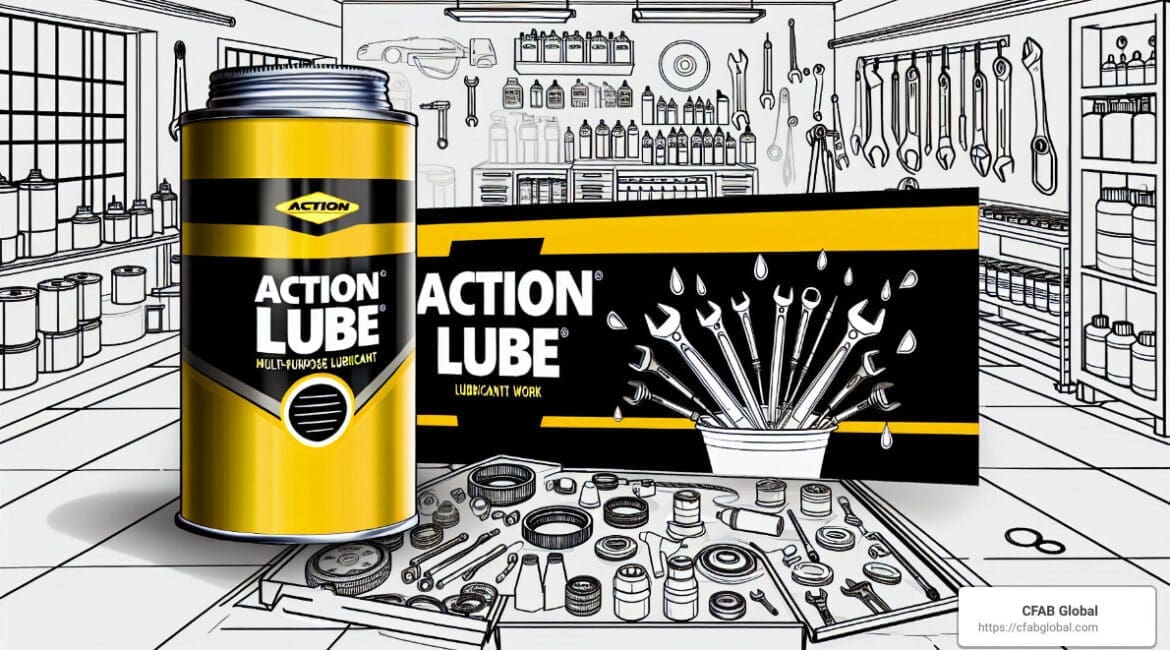Introduction
When we talk about “grease,” we’re referring to a substance that’s crucial in various industries and everyday life. So, what is grease? Grease is essentially a semi-solid substance made from a lubricant (like mineral or synthetic oil) and a thickening agent. It can also include additives for specific properties.
To get right to the point:
– Definition: A semi-solid lubricant used to reduce friction, wear, and heat.
– Importance: Vital in machinery, automotive applications, and even cooking.
– Overview: Helps in lubrication, sealing, and extending the lifespan of mechanical components.
Grease plays an important role in keeping machinery operational. From bearings and gears to everyday kitchen tasks, its versatility cannot be overstated. For food processing and packaging solutions, Beth-El Machinery Ltd. offers advanced equipment to ensure your operations run smoothly—free from contamination and downtime.
Here’s a quick visual summary of what grease is and why it’s important:

What is Grease?
Grease is a unique substance with multiple uses, ranging from industrial applications to everyday cooking. Let’s break down what it is and why it’s so versatile.
Lubricant
At its core, grease is a type of lubricant. It reduces friction between moving parts, making machinery run smoother and last longer. Unlike liquid oils, grease stays in place, which is crucial for components that need long-term lubrication.
Thickener
Grease isn’t just oil; it also contains a thickener. This thickener turns the oil into a solid or semi-solid state, allowing it to stay where it’s applied. Common thickeners include soaps like lithium stearate or calcium sulphonates. These materials give grease its unique consistency and properties.
Soap
The thickener in grease often includes soap. Not the kind you wash your hands with, but specialized soaps that emulsify oil. Soaps like lithium and calcium stearates are popular choices because they provide excellent temperature resistance and stability.
Solid and Semisolid
Grease can be either a solid or semisolid. This makes it ideal for applications where liquid lubricants would simply run off or not stay in place. For example, in machinery that operates under high pressure or in environments where contaminants like water could wash away liquid oils, grease remains effective.
Quick Facts:
- Lubricant: Reduces friction and wear.
- Thickener: Keeps the grease in place.
- Soap: Emulsifies the oil, making grease stable.
- Solid/Semisolid: Stays put, even under harsh conditions.
Grease’s unique composition makes it an indispensable tool in various fields, from industrial machinery to culinary practices. Up next, we’ll delve into the different forms and uses of grease in more detail.
Define Grease: The Various Forms and Uses
Grease is not just a single entity; it takes many forms and serves numerous purposes. Let’s explore its diverse applications in industrial settings, culinary practices, and even entertainment.
Define Grease in Industrial Applications
In industrial settings, grease is a workhorse. It’s primarily used to lubricate bearings and machinery, ensuring smooth operation and prolonging the life of equipment.
CFAB Global’s Machine Reliability Program leverages high-quality grease to minimize wear and tear on critical components. By using specialized greases, they help industries maintain machinery efficiency and reduce downtime.
- Bearings: Grease in bearings reduces friction, controls wear, and prevents rust.
- Machinery: It acts as a sealant, keeping contaminants out and ensuring consistent performance.
Define Grease in Culinary Practices
In the kitchen, grease is more than just a byproduct; it’s a flavor enhancer and cooking aid.
- Baking: Grease is used to coat baking sheets and pans to prevent sticking.
- Frying: Bacon grease, for instance, adds a rich flavor to eggs and potatoes.
- Flavoring: Some recipes call for specific types of grease, like bacon fat, to achieve a desired taste.
Define Grease in Entertainment
Grease has also made its mark in entertainment, most notably through the iconic 1971 musical “Grease” and its 1978 film adaptation starring John Travolta and Olivia Newton-John.
- Musical: The stage production of “Grease” captures the spirit of the 1950s with its catchy tunes and vibrant performances.
- 1978 Film: This adaptation brought the story to a wider audience, becoming a cultural phenomenon and spawning sequels and soundtracks.
Grease’s multifaceted nature makes it a crucial element in various domains, from keeping machinery running smoothly to adding flavor in the kitchen and entertaining millions worldwide.
Next, we’ll dive into the science behind grease, exploring its viscosity and how it works in different applications.
The Science Behind Grease
How Grease Works in Machinery
Grease is essential for machinery because it provides lubrication, friction reduction, and wear protection. But how does it work?
Viscosity
Viscosity is the measure of a fluid’s resistance to flow. Grease has high initial viscosity, meaning it’s thick and doesn’t flow easily. This high viscosity helps grease stay in place, even under heavy loads or at high speeds. When you apply shear (movement), the viscosity drops, and the grease flows more easily, providing the necessary lubrication. This property is called shear-thinning.
Shear-Thinning and Pseudo-Plastic Fluids
Grease is a pseudo-plastic fluid, which means its viscosity decreases under shear stress. When machinery parts move, the grease thins out, allowing it to spread and coat surfaces effectively. Once the movement stops, the grease returns to its original, thicker state, staying in place to protect the parts.
Lubrication
Grease is used in machinery to create a thin film between moving parts. This film reduces friction, which in turn lowers heat generation and wear. Proper lubrication extends the life of the machinery and improves performance.
Friction Reduction and Wear Protection
By reducing friction, grease minimizes the wear and tear on machinery parts. This is crucial for maintaining the efficiency and longevity of the equipment. Without proper lubrication, parts can wear out quickly, leading to costly repairs and downtime.
Grease in Electrical Systems
Grease isn’t just for mechanical parts; it also plays a role in electrical systems.
Dielectric Properties
Dielectric grease is a type of grease with excellent insulating properties. It prevents electrical current from leaking between connections, ensuring that the electricity flows where it should. This is especially useful in automotive and industrial applications where reliable electrical connections are crucial.
Moisture Protection
Moisture can cause corrosion and electrical failures. Grease acts as a barrier, protecting electrical connections from moisture and contaminants. This moisture protection is vital for maintaining the integrity of electrical systems, especially in harsh environments.
Grease’s unique properties make it indispensable in both mechanical and electrical applications, providing lubrication, reducing friction, protecting against wear, and ensuring reliable electrical connections.
Next, we’ll explore the different types of grease and their specific applications.
Common Types of Grease and Their Applications
Grease comes in many types, each designed for specific uses. Let’s explore some common types and their applications in automotive and food industries.
Automotive Greases
Petroleum-based Grease
Petroleum-based greases are the most common. They are made from mineral oils and are ideal for general-purpose lubrication. These greases offer good performance in moderate temperatures and are widely used in automotive applications.
Synthetic Grease
Synthetic greases are made from synthetic oils. They perform well in extreme temperatures and harsh conditions. These greases are perfect for high-performance vehicles and heavy machinery. They provide excellent protection against wear and tear, making them ideal for wheel bearings and chassis lubrication.
Biodegradable Grease
Biodegradable greases are eco-friendly alternatives to traditional greases. They are made from renewable resources and break down naturally. These greases are used in applications where environmental impact is a concern, such as agricultural and forestry equipment.
Applications in Automotive
- Wheel Bearings: Grease for wheel bearings needs to withstand high loads and temperatures. Synthetic greases are often used here due to their superior performance.
- Chassis: Chassis greases must protect against water and dirt. Petroleum-based and synthetic greases are commonly used to ensure smooth operation and longevity of the vehicle’s suspension and steering components.
Food Industry Greases
In the food industry, grease must meet strict safety standards. Beth-El Machinery Ltd. provides advanced food packaging equipment that ensures safe and efficient food processing.
Food-grade Grease
Food-grade greases are specially formulated to be safe for incidental contact with food. These greases are used in machinery that processes, packages, and handles food. They must be non-toxic and meet stringent health regulations.
Applications in Food Industry
- Packaging Equipment: Food packaging equipment requires lubricants that do not contaminate the food. Beth-El Machinery Ltd. offers solutions that use food-grade greases, ensuring safety and compliance with health standards.
- Processing Machinery: Grease in food processing machinery must withstand high temperatures and washdowns. Food-grade synthetic greases are often used to provide reliable lubrication and protection.
Using the right type of grease is crucial for the performance and safety of both automotive and food industry applications. Next, let’s address some frequently asked questions about grease.
Frequently Asked Questions about Grease
What does the slang “grease” mean?
In slang, the term “grease” can mean two very different things. It can refer to bribery, as in the phrase “grease someone’s palm.” This means giving someone money to influence their actions. For example, “The only way to get a permit in this town is to grease the commissioner’s palm.”
The other slang use of “grease” is a euphemism for killing. In some contexts, particularly in crime stories or movies, you might hear someone say, “The mob has been known to grease anyone who gets in its way.” This means to eliminate or kill someone.
How should grease be used in cooking?
Grease in cooking primarily refers to animal fats like bacon grease or lard, and vegetable fats like shortening. These fats are used in a variety of ways in the kitchen:
-
Baking: Grease can be used to coat baking sheets and pans to prevent sticking. For example, “Grease the baking sheet before spooning the dough onto it.”
-
Frying: Animal fats like bacon grease are often saved and reused for frying other foods, adding flavor. “She always saves the bacon grease to fry her eggs and potatoes in.”
-
Flavoring: Grease can also be used to add richness and flavor to dishes, such as using lard in pie crusts or gravies.
Why is grease important in machinery?
Grease plays a vital role in the lubrication and maintenance of machinery. Here are some key points:
-
Lubrication: Grease reduces friction between moving parts, which minimizes wear and tear. This is crucial for the longevity of machinery. “The primary purpose of lubrication is to reduce wear and heat between contacting surfaces in relative motion.”
-
Maintenance: Regular application of grease helps maintain equipment and prevents breakdowns. This leads to increased productivity and fewer interruptions. “Reduction of breakdowns resulting in increased production.”
-
Longevity: Proper lubrication extends the life of machinery. By reducing friction and wear, grease helps keep machines running smoothly for longer periods. “Extends the life of rotating equipment.”
Understanding these aspects of grease can help you make better decisions about its use, whether in the kitchen or in maintaining machinery.
Conclusion
In summary, grease is more than just a slippery substance; it’s a crucial component in various applications, from industrial machinery to culinary practices. Understanding what grease is and how it works can significantly impact your operations, whether you’re baking a cake or maintaining heavy-duty equipment.
Importance of Proper Grease Usage
Proper grease usage cannot be overstated. Here are a few key reasons why:
- Lubrication: Grease reduces friction between moving parts, preventing wear and tear. This is essential for the smooth operation of machinery.
- Protection: It shields components from contaminants like dust and moisture, which can cause corrosion and damage.
- Efficiency: Regular and correct application of grease minimizes equipment downtime and enhances productivity. This is particularly important in industrial settings where time is money.
- Longevity: Proper lubrication extends the lifespan of machinery. By reducing friction and wear, grease helps keep machines running smoothly for longer periods.
CFAB Global’s Role in Machinery Maintenance
At CFAB Global, we understand the critical role that proper lubrication plays in maintaining machinery. Our Machine Reliability Program offers a comprehensive approach to machinery maintenance. This program includes:
- Detailed Analysis: We assess your machinery to determine the best lubrication solutions.
- Premium Services: From sourcing the right parts to providing top-notch installation services, we’ve got you covered.
- Cutting-edge Equipment: We use the latest technology to ensure your machinery operates at peak efficiency.
- Unparalleled Support: Our 24/7 support ensures that you’re never left in the lurch.
By adopting our proven strategies, our clients experience enhanced productivity, minimized equipment downtime, and extended lifespan for critical components such as bearings and gearboxes.
For those in the food industry, we also offer specialized solutions through our partnership with Beth-El Machinery Ltd.. Their state-of-the-art food packaging and processing equipment ensures that your operations meet the highest standards of hygiene and efficiency.
Trust CFAB Global to keep your operations running smoothly and efficiently. Proper grease usage is not just a choice; it’s a necessity for anyone looking to maintain high standards of performance and reliability in their machinery.






